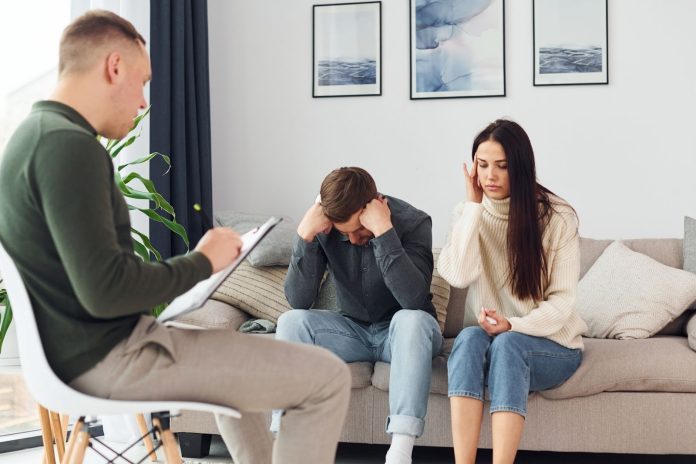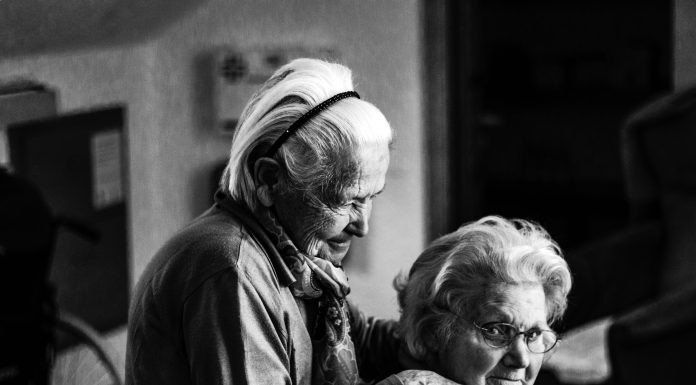You might think that seeking couples counselling signifies a failure in your relationship, but let’s reconsider that perspective. Instead, it’s an indication of your commitment to nurture and fortify your bond. It’s not an admission of defeat, but a strategic move to understand, navigate, and ultimately overcome the challenges that are part and parcel of any shared life journey.
In this exploration, we’ll uncover the transformative potential of couples counselling. We’ll discuss how it can lay the groundwork for improved communication, deeper emotional connection, and more resilient conflict resolution.
Intrigued? Let’s take the plunge into this compelling topic.
Understanding Couples Counselling
Diving into couples counselling, you might find it to be a supportive space where both partners can express their feelings openly, work through conflicts, and strengthen their relationship. It’s not a magic formula that instantly resolves all issues but rather a safe haven where you can navigate the rough waters of your relationship with professional guidance.
It’s important to understand that couples counselling isn’t about assigning blame. Instead, it’s about exploring patterns of interaction, uncovering underlying issues, and learning healthier ways to communicate. You’ll likely discover that it’s not the big issues that cause the most stress, but the small, repeated patterns of behavior that erode your connection over time.
While navigating the transformative journey of couples counselling, it’s essential to recognize the enduring benefits of couples counselling that extend well beyond immediate problem-solving. This forward-thinking approach equips you with the tools and techniques to handle future concerns effectively, fostering resilience and fortifying the bond between you and your partner.
Remember that it’s okay to feel scared or vulnerable. This is a journey of discovery. You’re not alone in this process; your counsellor is there to guide you, providing the tools and strategies you need to rebuild trust and foster understanding.
The Role of a Counsellor
In the realm of couples counselling, the counsellor plays a pivotal role, acting as a neutral mediator to guide you and your partner towards better understanding and communication. They don’t take sides, but rather help both of you articulate your thoughts and feelings, so you can see things from each other’s perspective. It’s all about fostering open, honest dialogue.
The key roles of a couples counsellor include:
- Facilitating communication: They help you express your feelings effectively, so your partner understands your perspective.
- Providing tools and techniques: They equip you with strategies to resolve conflict and improve your relationship.
- Promoting personal growth: They encourage self-reflection, helping you recognize your role in the relationship dynamic.
- Offering unbiased guidance: They provide impartial advice, so you can make informed decisions about your relationship.
Identifying Relationship Stressors
Often, it’s the unchecked stressors lurking in your relationship that cause the most damage. You mightn’t even be aware of them, but they’re there, progressively undermining the bond you share with your partner.
Identifying these stressors is a crucial step in couples counselling. It’s akin to shining a light on the hidden cracks in a structure, revealing areas that need reinforcement. Common stressors can range from financial issues to communication difficulties, unresolved conflicts, or even external pressures like work stress or family problems.
Remember, it’s not the presence of these stressors that defines the health of your relationship, but how you manage them. In fact, every relationship has its share of stressors. It’s a normal part of sharing your life with someone.
In couples counselling, you’ll learn to identify and address these stressors. You’ll develop tools and strategies to navigate through them, turning potential relationship pitfalls into opportunities for growth and deeper understanding. With guidance, you’ll not only strengthen your bond but also transform your relationship into a source of mutual support and fulfillment.
Communication Enhancement Techniques
How can you enhance communication with your partner to foster understanding, empathy, and connection? It’s often more about how you communicate than what you’re actually saying. The key lies in practicing communication techniques that can transform the way you and your partner interact.
Consider the following approaches:
- Active Listening: Instead of formulating your response while your partner speaks, focus entirely on what they’re saying. It’s about understanding, not just hearing.
- Nonviolent Communication: Express your needs without blame. Use ‘I’ statements such as ‘I feel…’ instead of ‘you’ statements like ‘You always…’.
- Mindful Communication: Stay present during conversations. Avoid distractions and really tune in to your partner’s words and emotions.
- Assertive Communication: Clearly express your thoughts and feelings, while also respecting your partner’s perspective.
The Process of Conflict Resolution
Ever found yourself locked in a repetitive cycle of arguments with your partner, struggling to reach a resolution? It’s a tough spot to be in, but rest assured, you’re not alone. Many couples face this issue and it’s where the process of conflict resolution in couples counselling can make a substantial difference.
Conflict resolution doesn’t mean winning an argument. It’s about understanding your partner’s perspective, validating their feelings, and finding a compromise that respects both parties’ needs and desires. This process isn’t easy, but it’s crucial for a healthy relationship.
Couples counselling guides you through this process. You’ll learn to recognize the triggers that ignite conflicts, understand the underlying issues, and develop effective communication strategies to address them. You’ll practice active listening, empathy, and assertiveness, fostering a safe environment for open dialogue.
Remember, it’s okay to disagree. What’s important is how you handle disagreements. With professional guidance, you’ll acquire the tools to navigate conflicts constructively, strengthening your bond and deepening your understanding of each other.
Conflict resolution in couples counselling isn’t a magic fix, but it’s a transformative journey that can turn arguments into opportunities for growth. Trust the process and you’ll see progress.
Emotional Healing Through Counselling
Navigating the turbulent waters of emotional distress, couples counselling serves as a safe harbor, facilitating the process of emotional healing. It’s a space where you can reveal your deepest fears, regrets, and hopes without judgment. You’ll find that this process isn’t just about resolving conflicts, but also about learning to understand and express your emotions more effectively.
Counselling can provide you with various emotional healing benefits, including:
- The chance to confront painful emotions in a supportive setting
- The opportunity to gain insight into your emotional patterns and triggers
- Developing healthier ways of expressing and managing your emotions
- Fostering emotional intimacy and understanding between you and your partner
Remember, it’s okay to feel vulnerable during these sessions. It’s a part of the process. You’re not alone, and you’re not without help. Your counselor is there to guide you, providing strategies and tools to help you navigate through your emotional landscape.
In essence, emotional healing through counselling strengthens your bond with your partner. It allows you to build a relationship based on understanding, empathy, and genuine emotional connection. It’s a transformative journey that can lead to a more fulfilling, balanced relationship.
Long-term Benefits of Therapy
While the immediate impact of couples counselling can be incredibly beneficial, it’s the long-term rewards that truly make the process worthwhile. It’s not just about resolving the issues at hand; it’s about equipping you with the tools and techniques to handle future concerns effectively. This kind of forward-thinking approach fosters resilience and strengthens the bond between you and your partner.
Over time, you’ll find that the benefits of therapy extend well beyond your relationship. It’s been proven that happier relationships contribute to better mental health and overall well-being. It can even improve your physical health, reducing stress and its associated risks.
Moreover, the improved communication skills you gain from therapy can benefit you in other areas of your life as well. It can enhance your interactions at work, with friends, or within your family. This ripple effect is one of the most powerful aspects of couples counselling.
In the long run, investing in couples counselling could be one of the best decisions you make for your relationship and personal growth. So don’t underestimate the transformative power of therapy. It’s about building a stronger, healthier, and more fulfilling future together.
Photo Source: https://www.vecteezy.com/photo/15458459-couple-is-sitting-on-the-sofa-and-working-with-male-psychologist

























